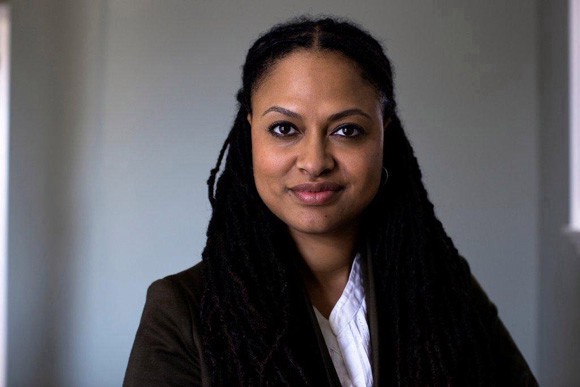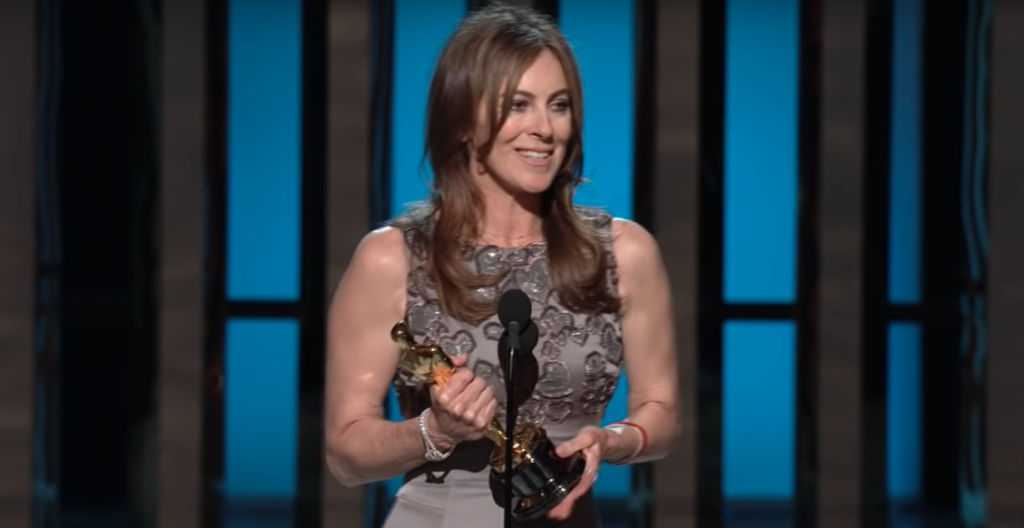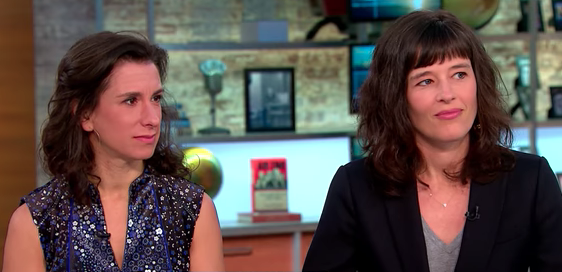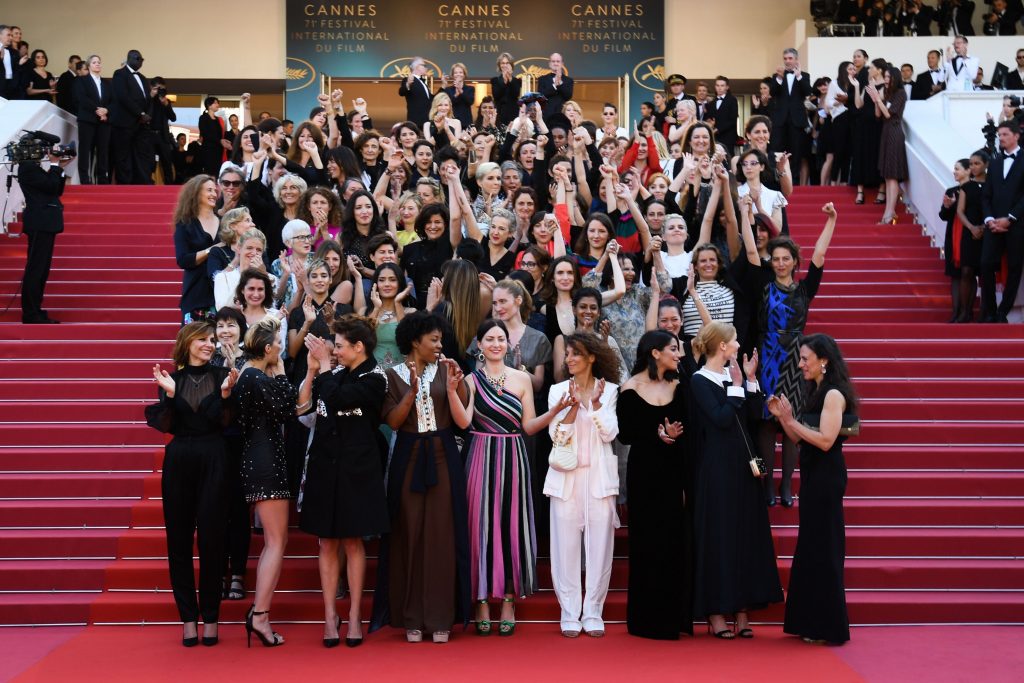The fight for gender equality and inclusion in show business is very much one step forward, two steps back. Just consider the 2020 Golden Globe nominations: even though there were a bunch of great women-made films released this year, zero women were nominated for the Best Director prize (again).
Tracking representation in Hollywood can make for discouraging work — so it’s vital to remember that there have been plenty of successes for women in the industry, especially in recent years.
To celebrate the end of the decade, Women and Hollywood revisited five of the biggest moments for women in film during the 2010s. To be sure, there have been plenty more wins for women in the biz over the past 10 years. However, these five specific milestones are not only historic, they encompass a myriad of issues related to equality and inclusion — feminism, fair pay, opportunity, representation, sexual harassment, and more. They’re symbols of how the industry is evolving.
Here’s to a new decade and another 10 years of women making strides in Hollywood.
Kathryn Bigelow Becomes the First Woman to Win the Best Director Oscar
“Well, the time has come,” Barbra Streisand said as she announced the Academy Award winner for Best Director on March 7, 2010. “Kathryn Bigelow!”
Bigelow became the first woman to take home the directing Oscar that night, for war thriller “The Hurt Locker,” beating out ex-husband James Cameron and three other dudes. At that point, she was only the fourth woman ever to be nominated in that category; Lina Wertmüller (“Seven Beauties”), Jane Campion (“The Piano”), and Sofia Coppola (“Lost in Translation”) previously scored nods. It would be eight years before another woman director, Greta Gerwig (“Lady Bird”), was nominated.
Since her historic win, Bigelow directed another Oscar-winning film, “Zero Dark Thirty,” the story of the CIA operative determined to bring Osama bin Laden to justice, and “Detroit,” which centers on a deadly clash between a group of young black men and police officers during the 1967 Detroit riots. She also exec produced this year’s Netflix action pic “Triple Frontier.”
To date, Bigelow is the only woman with a Best Director Oscar and she, Wertmüller, Campion, Coppola, and Gerwig are the only women to receive nominations — all white women, and only one nomination each. There is a chance Gerwig will become the first woman to ever score more than one Best Director Oscar nod with “Little Women,” or that another buzzy female helmer such as Lulu Wang (“The Farewell”) or Marielle Heller (“A Beautiful Day in the Neighborhood”) will be nominated in 2020 — only time will tell.
In other words, Bigelow achieved a huge milestone at the beginning of 2010. She was the first woman to pick up the directing Oscar, which is widely considered the top honor a filmmaker can receive, but — Academy voters, take note here — under no circumstances should she be the last.
Ava DuVernay Becomes the First Woman of Color to Direct a Live-Action Film with $100 Million-Plus Budget

DuVernay
Ava DuVernay has a habit of making history. In 2012, she became the first black woman to win the Director’s Prize at Sundance Film Festival for “Middle of Nowhere,” her second feature. In 2015 she became the first black woman to be nominated for best director at the Golden Globes for “Selma.” The Martin Luther King biopic also received a Best Picture nod at the Oscars, making her the first black woman director to have her film nominated in the category.
In 2016 DuVernay achieved yet another milestone when she became the first woman of color to helm a live-action film with a $100 million-plus budget, “A Wrinkle in Time.” Her adaptation of the beloved fantasy book made her the third woman to ever direct a film with a budget of that size, following in the footsteps of Kathryn Bigelow (“K19: The Widowmaker”) and Patty Jenkins (“Wonder Woman”).
DuVernay has always practiced and preached the importance of holding the door open for others. She founded ARRAY, a grassroots distribution, arts, and advocacy collective that specializes in film and TV by women and people of color, back in 2010 — long before conversations about inclusivity became the mainstream topic they are today. While its budget hasn’t been confirmed, it seems nigh impossible that Chloé Zhao’s take on Marvel’s “The Eternals” will be made for less than $100 million. We’re betting DuVernay couldn’t be happier that she’s no longer the only woman of color to helm a pic with a $100 million+ budget — she was just the beginning. We’ll be seeing more and more names of women of color added to this elite list as Hollywood evolves. DuVernay herself may make a second appearance — she’s directing a big-budget adaptation of DC Comics’ “The New Gods.”
Women Break into the Superhero Genre

“Wonder Woman”
Love them or hate them, superhero movies aren’t going anywhere. Comic book adaptations have become the central force driving the domestic and international box office, and up until fairly recently, women were shut out of the genre. Every installment of franchises such as “Iron Man,” “Thor,” “Captain America,” “The Avengers,” and “Batman” were helmed by men. And it’s only in 2019, years after popular demand from fans, that we’re getting a standalone Black Widow pic. Superhero films have, for the most part, omitted women on-screen and behind the scenes — but it’s a new dawn.
Patty Jenkins became the first woman to direct a DC Comics adaptation with 2017 Gal Gadot-starrer “Wonder Woman.” The film premiered to rave reviews — far superior to those of any other DC title — and took in over $821 million worldwide, making it the 10th highest-grossing pic worldwide that year and the 3rd highest-grossing film in the U.S. Jenkins broke new ground — and ensured she was compensated accordingly. During negotiations for a sequel, “Wonder Woman 1984,” she fought for fair pay, and went public with her decision. “You’re of course aware of the money,” Jenkins said of her salary talks. “But I’ve never been more aware of a duty than I was in this deal. I was extremely aware that I had to make sure I was being paid what the male equivalent would be.”
Since “Wonder Woman,” Anna Boden co-directed 2019’s “Captain Marvel” with Ryan Fleck, making her the first woman to helm a Marvel title. The Brie Larson-led pic grossed over $1.128 billion worldwide.
Jenkins and Boden helped disprove the all-too-persistent myths that women can’t — and don’t want to — direct big budget genre pics and that audiences don’t want to see female-led films. And now more women are stepping behind the camera for comic adaptations. Next year alone we’re expecting Cathy Yan’s Harley Quinn standalone pic “Birds of Prey” (February 7), Cate Shortland’s “Black Widow” (May 1), Jenkins’ “Wonder Woman 1984” (June 5), and Chloé Zhao’s “The Eternals.” Looking onward, DuVernay is signed on to helm “The New Gods” for DC.
The Fall of Harvey Weinstein and Rise of #MeToo
In October 2017, The New York Times’ Jodi Kantor and Megan Twohey and The New Yorker’s Ronan Farrow published exposés on Harvey Weinstein’s decades-long, oft-whispered-about habit of preying upon, assaulting, and harassing women. Fast forward to the end of 2019, and Weinstein is preparing to settle with many of his accusers for $25 million, without having to personally pay anything or admit to any wrongdoing. As disappointing as this legal outcome is, there is no way the world is going back to how it was pre-fall 2017.
In the weeks, months, years after the Weinstein stories broke, survivors — both women and men — have been coming forward in droves, sharing their experiences and naming other high-profile predators. Louis C.K., Les Moonves, Kevin Spacey, R. Kelly, Matt Lauer, and Charlie Rose are just a few of the men whose misdeeds have been brought to the public’s attention. Some of those dudes have faced real consequences, some of them are mounting comebacks, some of them have ‘fessed up, others maintain their innocence. Many of them have done all of the above.
Pandora’s box had been opened — and it’s never going to close. Women came together to reinvigorate Tarana Burke’s #MeToo movement and create Time’s Up. The “Silence Breakers” were named Time’s Person of the Year in 2017. Across the film industry, new measures were introduced to combat sexual misconduct and Anita Hill was brought in to head a commission dedicated to eliminating workplace harassment. Crisis hotlines were introduced, making it easier for victims to report their experiences or get legal advice. Red carpet protests were organized, and women became more vocal about the gender pay gap. Sexual harassment and feminism were explored more in-depth in pop culture.
Things changed in October 2017. The world didn’t completely turn upside down, but our perspectives and expectations did. We became more aware of how deeply ingrained misogyny is in everything — and realized sexual misconduct is a spectrum that contains catcalling, sexist jokes, workplace harassment, groping, rape, and more. We became more confident, more comfortable stating what we want and what we don’t.
Unfortunately, Weinstein might emerge from #MeToo more or less unscathed. Maybe he’ll have to pay for his sins with jail time after his upcoming criminal trial. No matter what, the past two years have shown time and again that the culture that protected Weinstein for so long has forever changed. For some, there is no redemption.
82 Women March the Palais de Festival at Cannes 2018
Eighty-two women, including Cate Blanchett, Ava DuVernay, Agnès Varda, Kristen Stewart, Céline Sciamma, and Women and Hollywood’s Melissa Silverstein, walked the Palais de Festival’s steps on May 12, 2018. They were protesting Cannes Film Festival’s historic exclusion of women directors — at that point, only 82 women had ever walked the steps as directors with films in competition, compared to the 1,688 men.
Cannes is seen as the most prestigious film fest in the world, and it’s definitely one of the most backwards in terms of representation. But after the march on May 12, 2018, it (very slowly) started to take a hard look at itself. A couple days later it became the first festival to sign the Gender Parity Pledge, committing itself to greater transparency and inclusion. This year it released its gender stats and its selection committee, upholding the Pledge. Plus, alongside its film market Marché du Film, Cannes 2019 offered childcare and other services to industry professionals with babies or small children.
Cannes’ woman problem is still far from fixed — only a handful of women directors had films in the 2019 edition — but it is setting an example and seems to be inspiring other festivals. Many fests, big and small, have signed the Pledge since Cannes 2018 and continue to do so. Venice, Toronto, and San Sebastian offered childcare and family-friendly services at their 2019 editions.
Gender parity is becoming the expectation at film festivals. Even if certain fests don’t care about representation or inclusion, cultural commentators do — and you can bet they’ll continue to make their voices heard.









